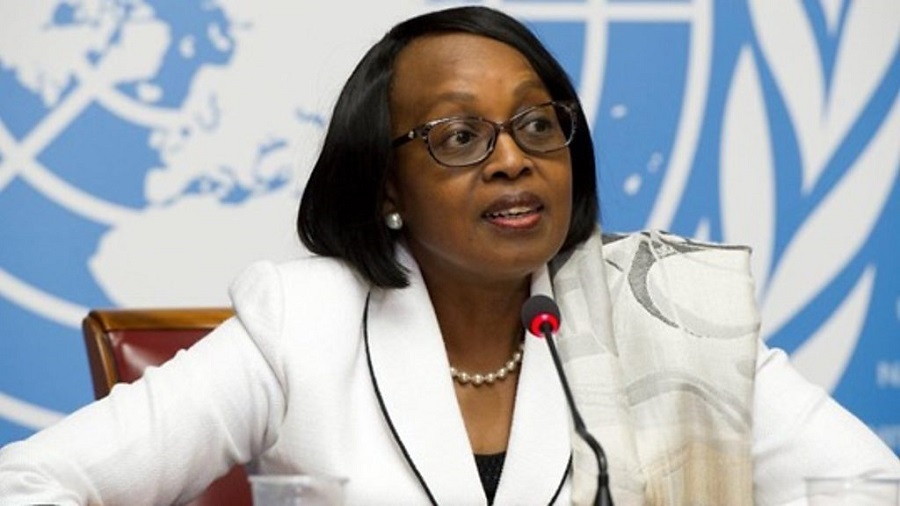When the Minister of Health, Dr Osagie Ehanire, announced last week that the COVID-19 vaccines would arrive Nigeria before the end of February, several Nigerians were hopeful that there was light at the end of the tunnel. But it appears their hopes may be dashed, due to the latest news from the World Health Organisation (WHO).
During a virtual press conference hosted by the global health body and shared on its Twitter handle, Nigeria was not shortlisted for the Pfizer vaccines by the WHO-led COVAX global initiative. This may be due to an allegation that the continent’s largest economy is unable to meet the standard requirement of being able to store the vaccines at the required 70 degrees Celsius.
At the event, Director, WHO, African Region, Dr Matshidiso Moeti, clearly stated that only four African countries were shortlisted for the Pfizer vaccine out of the 13 that applied.
READ: Nigeria to get 41 million Covid-19 vaccines from African Union – NPHCDA
To access an initial limited volume of Pfizer vaccine, countries were invited to submit proposals. 13 African countries submitted proposals and were evaluated by a multi-agency committee based on current mortality rates, new cases and trends, and the capacity to handle the ultra-cold chain needs of the vaccine.
She said, “In addition, around 320,000 doses of the Pfizer-BioNTech vaccine have been allocated to four African countries: Cabo Verde, Rwanda, South Africa & Tunisia. Deliveries are also expected later in February.”
READ: Investing in vaccine procurement will improve Primary Healthcare – NPHCDA
"In addition, around 320,000 doses of the Pfizer-BioNTech vaccine have been allocated to four African countries: Cabo Verde, Rwanda, South Africa & Tunisia. Deliveries are also expected later in February." – Dr @MoetiTshidi #COVID19 #Africa
— WHO African Region (@WHOAFRO) February 4, 2021
Moeti emphasised that WHO could not risk the Pfizer vaccines being wasted. According to her, the vaccine has received WHO Emergency Use Listing but requires countries to be able to store and distribute doses at minus 70 degrees Celsius.
“This announcement allows countries to fine-tune their planning for COVID-19 immunisation campaigns. We urge African nations to ramp up readiness and finalise their national vaccine deployment plans. Regulatory processes, cold chain systems and distribution plans need to be in place to ensure vaccines are safely expedited from ports of entry to delivery. We can’t afford to waste a single dose,” she added.
READ: UK imposes travel ban on UAE, others over surge in Covid-19 infections
But is there hope?
Nigeria was expected to be on the list of African countries to receive the first set of Pfizer vaccines because of its rate of infection, but with the WHO announcement, the nation will need to wait longer.
While Morocco, and Egypt have already independently obtained vaccines and begun distribution, South Africa, has already procured one million doses of the Oxford-AstraZeneca vaccine, produced in India.
However, Nigeria has not received any COVID-19 vaccine and its rate of infection has continued to surge. If the nation does not get the vaccines in February, the atmosphere could be more tensed, with the increasing cases witnessed in the country.
On the brighter side, it appears that there is hope for Nigeria, as there is an Oxford-AstraZeneca option to explore.
Moeti added that countries that failed to make the Pfizer list could get the Oxford-AstraZeneca vaccine later in the month, although it has not yet been endorsed by the health organisation.
But do we have the storage facilities for this? Findings revealed that the Oxford-AstraZeneca vaccine does not need to be stored in a cold facility.
“Nearly 90 million of the Oxford/AstraZeneca vaccine could start arriving on the continent later this month. This is subject to the WHO listing the vaccine for emergency use. The review is ongoing and its outcome is expected very soon,” she said.
What you should know
- To complement COVAX efforts, the African Union has secured 670 million vaccine doses for the continent which will be distributed in 2021 and 2022 as countries secure adequate financing.
- The African Export-Import Bank will facilitate payments by providing advance procurement commitment guarantees of up to $2 billion to the manufacturers on behalf of countries.
- Last Monday, Nairametrics had reported when Ehanire announced that Nigeria would take delivery of 15 million vaccines from COVAX in February.
- Though the minister did not specify the date or time, he disclosed that the government had been advised to expect the first batch of the vaccines from February.
- He said, “According to latest information I have, we have been advised to expect the first COVID-19 vaccines from Covax to arrive in Nigeria as from February. We shall continue to review plans to ensure smooth roll out in our country.”
